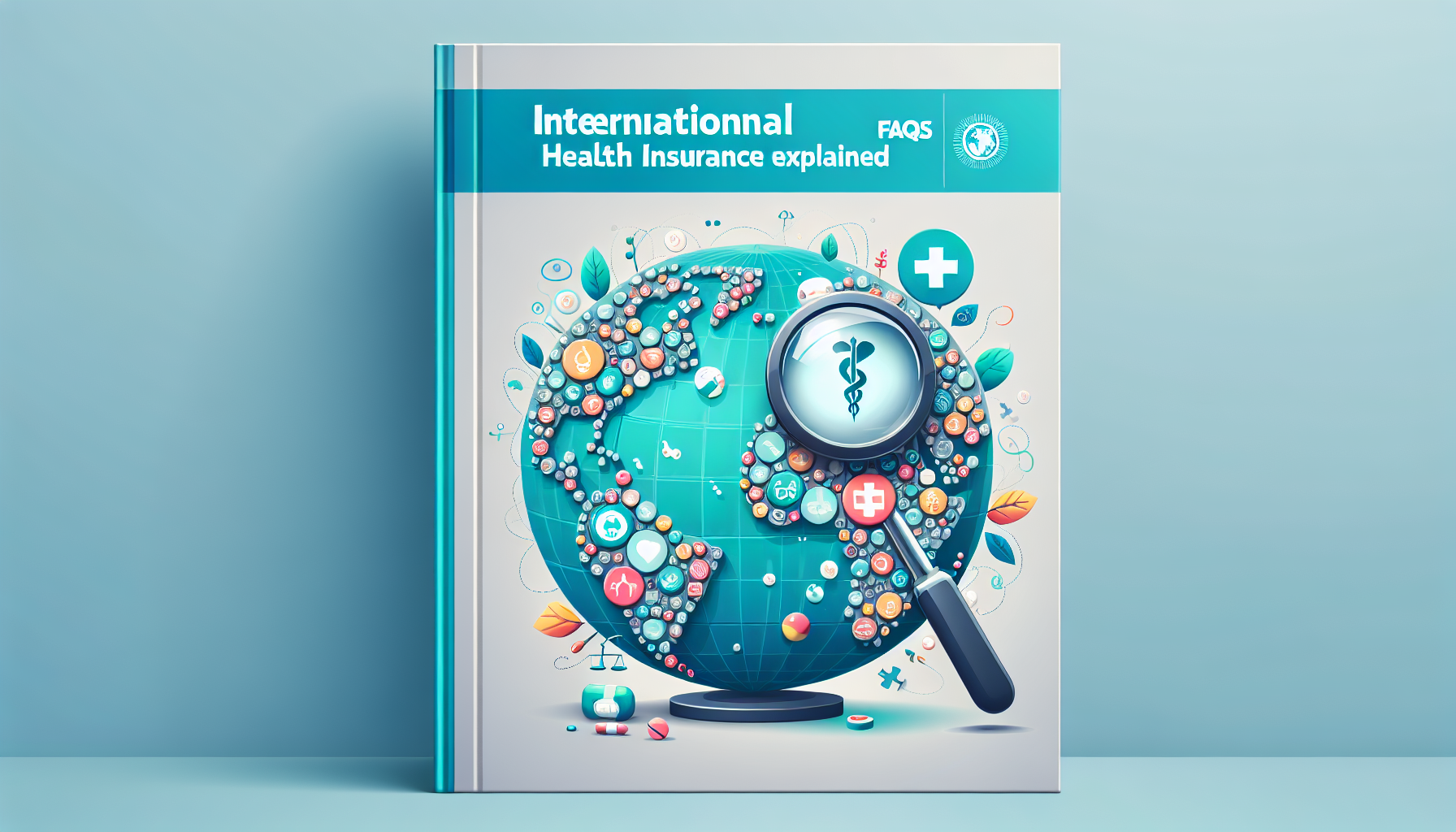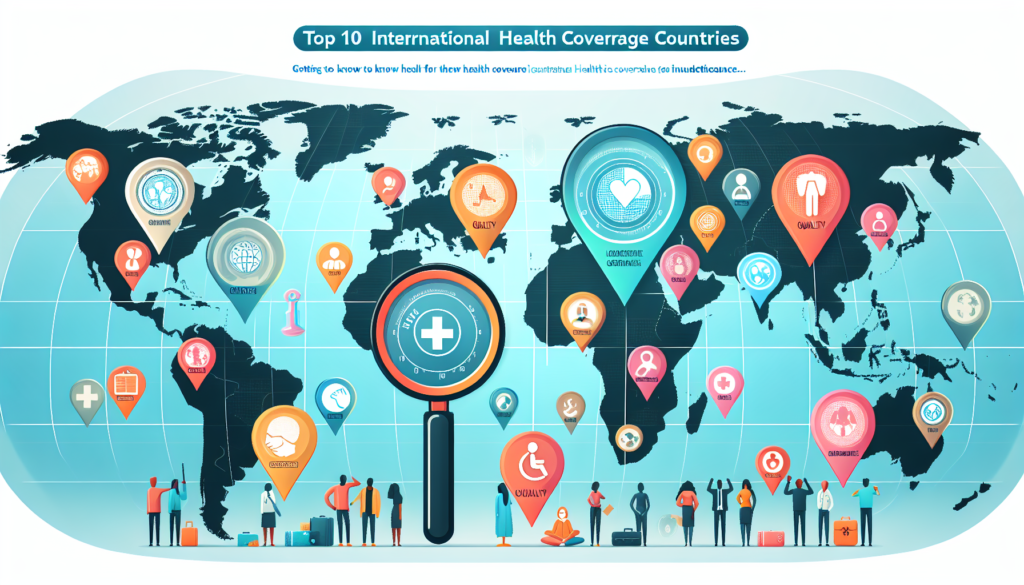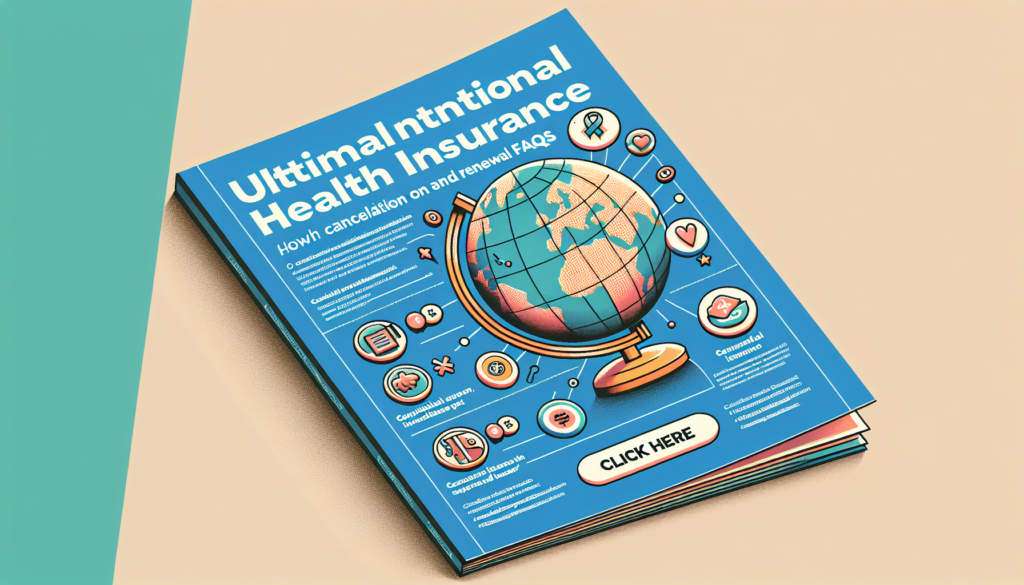Find out everything you need to know about international health insurance by exploring our FAQ article: What is international health insurance? A complete guide to understanding the advantages and specificities of this essential insurance for your professional and personal trips abroad.
Reasons to opt for international health insurance

Global access to healthcare
One of the main reasons to opt for international health insurance is global access to medical care. By choosing this type of coverage, you are no longer limited to treatment in your country of residence. Whether you are on a business trip to New York, passing through Tokyo or on vacation in Sydney, international health insurance guarantees you rapid and efficient care.
Coverage for high medical expenses
Medical costs can vary greatly from country to country, and in some places they can be particularly high. With international health insurance, you are protected against unpleasant financial surprises. Coverage typically includes medical consultations, hospitalizations, specialized treatments, and even emergency medical evacuations, giving you complete peace of mind.
Repatriation assistance
When you face a medical emergency abroad, the idea of having to manage repatriation can be daunting. Fortunately, international health insurance regularly includes repatriation assistance. This service is designed to facilitate your return to your country of residence in the event of a serious health problem, by covering the costs and organizing all the necessary logistics.
Quick and easy refunds
Bureaucracy and delays in reimbursements can be frustrating. Good international health insurance stands out for the speed and simplicity of its reimbursement process. In general, quality assurances offer:
- Simplified application forms.
- Fast processing times.
- Total transparency on the follow-up of your request.
These elements help minimize financial and administrative stress, allowing you to focus on your recovery.
Quality of customer service
Finally, one of the most significant advantages of international health insurance is the quality of customer service. Often available 24/7, customer service is there to answer all your questions and assist you in your medical procedures, wherever you are. The ability to speak to a competent advisor, in the language of your choice, is a major asset in managing potentially stressful situations.
In summary, international health insurance is an ideal solution for those who travel frequently, providing comprehensive coverage and unparalleled peace of mind.

What is the difference between travel insurance and international health insurance?
Wondering what the difference is between travel insurance and international health insurance? Find out in this article how to distinguish these two essential types of insurance for your travels abroad. Ready to lift the veil on this mystery? How international…

Is it possible to take out international health insurance for a limited period?
Find out how to get international health insurance for a limited time and make sure you’re covered when traveling abroad. Master the benefits of this flexible option for protection tailored to your international health needs. Temporary Cover for Expats and…
Criteria for choosing the right insurance contract

Understand your specific needs
To choose your international health insurance, it is essential to start with an assessment of your specific needs. If you travel frequently for business or are an expat, you will need more extensive cover than for an occasional vacation. Ask yourself the following questions:
– Which countries do you visit most often?
– Do you have any special medical needs?
– What is the average length of your stays abroad?
– Are you looking for coverage for family or individual trips?
This analysis will allow you to determine which aspects of coverage are non-negotiable for you.
Evaluate the guarantees offered
Comparing the guarantees offered by different contracts is a crucial step. You must make sure that the insurance covers at least basic medical expenses, but also additional services such as:
– Hospitalization and outpatient care
– Dental and ophthalmological care
– Prescription medications
– Maternity care (if applicable)
Some policies also offer specific services such as alternative medicine, physiotherapy or psychological support. Think about what matters most to you and make sure those aspects are included.
Check repatriation and medical evacuation options
In the event of a medical emergency abroad, repatriation and medical evacuation can be vital. Make sure your insurance contract includes these options without too restrictive conditions. Prompt and organized support in critical situations can make all the difference.
Consider ease of access to care
Your insurance should allow you to easily access care, regardless of your location or time zone. Check if the insurer offers 24/7 assistance and if reimbursements are made quickly. The ability to access a global network of healthcare providers is also a major plus, as it makes getting quality care much simpler.
Examine the flexibility and modularity of contracts
Another essential feature to consider is the flexibility of the insurance contract. Some insurers offer modular plans, allowing you to choose the options that best suit your needs. If you have evolving life plans, for example, a long-term expatriation, this flexibility can prove particularly beneficial.
Analyze customer reviews and the reputation of the insurer
The reputation of the insurer can give you a good indication of the quality of customer service and responsiveness in the event of a claim. Consult customer reviews and do not hesitate to request testimonials from your colleagues or loved ones. A well-rated insurer with a reputation for competent customer service often provides peace of mind.
Understanding Exclusions and Limitations
Finally, pay close attention to the exclusions and limitations of each contract. Some policies exclude pre-existing illnesses, experimental treatments or even high-risk sports. Understanding these limitations will help you avoid unpleasant surprises when you need support.
By taking these criteria into account, you ensure that you choose an international health insurance contract that will truly meet your expectations and accompany you with peace of mind on all your international trips.

Which countries are covered by international health insurance?
Discover in this article the countries covered by international health insurance. This way you will know how to protect your health when traveling abroad. Geographic coverage of international health insurance Scope of international health insurance One of the main concerns…
Coverage offered by international health insurance
What is international health insurance?
International health insurance is coverage specifically designed for individuals who travel frequently or live abroad. It offers comprehensive medical protection, regardless of your destination, and ensures that you will receive the necessary care when needed. Unlike local health insurance, international health insurance is valid in several countries and takes into account the specificities of local health systems.
Types of coverage offered
International health insurance offers a varied range of coverage tailored to your needs. Here are some types of coverage often included:
– Hospitalization: coverage of hospitalization costs, including admissions, treatments and surgical interventions.
– Medical consultations: reimbursement of consultations with general practitioners and specialists.
– Medicines: coverage of prescribed medicines, often with specific ceilings and exclusions.
– Dental and vision: Some policies include options for dental and vision, although these may be limited.
– Maternity: coverage of pregnancy, childbirth and postnatal care costs.
– Emergencies and medical evacuations: ensuring access to quality care in the event of a medical emergency, including repatriation if necessary.
Support for hospital care
International health insurance generally covers costs related to hospitalization. This includes surgeries, intensive treatments and long-term care. In the event of an emergency, you can rest assured that the costs associated with your hospital stay will be taken care of, reducing financial stress.
Medical consultations
Consultations with GPs or specialists are another key part of the cover. Whether you need to consult for a simple flu or for a more serious illness, international health insurance guarantees that you will be reimbursed for these costs. This also includes necessary follow-up visits and diagnostic tests.
Prescribed medications
Prescription drug costs can add up quickly, especially when traveling abroad. With international health insurance, these costs are often covered, ensuring you have access to the medications you need, without worrying about the financial impact. However, it is important to check the limits and exclusions of your policy in terms of covered medications.
Dental and optical care
Some international health insurance policies include coverage for dental and vision care. This may include routine exams, dental repairs, and glasses or contact lenses. Although this coverage may be limited, it still provides valuable assistance in maintaining good general health.
Maternity and postnatal care
For those planning or expecting a happy event, some international health insurance plans offer coverage for maternity expenses. This normally includes antenatal visits, delivery costs and postnatal care. This option is ideal for expectant mothers who want peace of mind even when they are abroad.
Medical emergency and evacuation
In the event of a medical emergency, international health insurance provides you with coverage for urgent care, including transportation to a specialized hospital or even repatriation to your home country. This option is crucial for those who travel a lot and want to guarantee their safety in all circumstances.
The quality of customer service
Good customer service can make a big difference. The best international health insurance companies offer responsive, multilingual customer service, available 24/7. This includes advisors who can guide you in choosing hospitals and clinics, as well as the reimbursement process.
Choose insurance companies offering online management platforms to consult your reimbursements and medical files in real time.

Discover the essential answers to your questions about international health insurance: from cancellation to renewal. Let’s clarify together these crucial steps for optimal medical coverage abroad. What is the procedure for canceling international health insurance? Understanding the reasons for termination…
Steps to take out international health insurance
Understanding your international health insurance needs
Before subscribing to international health insurance, it is crucial to clearly define your needs. Evaluate your travel habits, frequent destinations and the potential risks associated with these trips. Also take into account your current health and any medical treatment you may need abroad.
Compare available offers
Once your needs are clearly identified, it is time to compare the different international health insurance offers available on the market. Pay particular attention to the following criteria:
- Extent of coverage (medical care, hospitalization, consultations, pharmacy, etc.)
- Assistance and repatriation
- Waiting periods
- Deductible amounts and reimbursement ceilings
- Quality of customer service
- Ease of access to care and network of medical partners
- Online management options and mobile applications
Check insurance policy exclusions
Before finalizing your choice, carefully read the general conditions of the insurance policy to check for any exclusions. This will ensure you are well informed about what is covered and what is not. Here are some things to look out for:
- Pre-existing illnesses
- Extreme sports or risky activities
- Dental or ophthalmological care
- Geographic limits
Get personalized quotes
Once you’ve selected a few offers that seem to meet your needs, request personalized quotes. This will allow you to obtain an accurate cost estimate based on your profile and travel habits. Do not hesitate to ask insurers questions to clarify any gray areas.
Read customer reviews
Reviews from other customers can give you an idea of the quality of service and the general satisfaction of policyholders. Consulting forums, blogs and review sites can be very helpful in getting a real, concrete view of other users’ experiences with the health insurance you are considering.
Subscribe to international health insurance
After analyzing all the elements and making your choice, proceed to subscription. You can generally do this online, by telephone or by going directly to an agency.
Keep all important documents
Once your subscription is finalized, make sure to keep all documents relating to your international health insurance, such as the insurance policy, membership cards and emergency numbers. Keep this information handy when traveling for optimal peace of mind.
Find out everything you need to know about the process of purchasing international health insurance through this comprehensive and informative FAQ. Simplify your procedures and ensure your peace of mind when traveling abroad. International Health Insurance FAQ: Underwriting Process What…
Find out everything you need to know about international health insurance in one place! Clear and complete information on coverage and benefits to answer all your questions. Embark on a worry-free health insurance journey! Scope of international health insurance Geographic…
The differences between local and international health insurance
Extensive international coverage
When talking about international health insurance, it is crucial to understand that it offers much broader coverage than local health insurance. Local insurance is generally limited to the territory of the country where it is taken out. They cover medical costs only in that country, which can be a problem for people who travel frequently. On the other hand, international health insurance allows you to benefit from medical care in almost any country in the world.
Flexibility of care and treatment options
Another key difference is the flexibility of care. International health insurance often allows you to choose your healthcare providers without being limited to local networks. This means you can consult specialists and access world-renowned medical facilities no matter where you are. This freedom of choice is often very restricted in local insurance which imposes specific healthcare networks.
Transparency and speed of reimbursements
The speed and transparency of reimbursements are often a strong point of international health insurance. These insurances are designed to be efficient and transparent, making the reimbursement request process easier. In addition, they use modern technologies to simplify and accelerate the processing of files. On the other hand, local insurance can be slower and more complex, particularly due to specific national regulations.
Additional support and services
International health insurance often offers additional services that are not common with local insurance. These services include repatriation assistance, 24/7 telephone medical assistance, as well as translation services to facilitate communication with healthcare professionals abroad. These services are particularly useful for people who travel regularly.
Cost and value of premiums
The cost of premiums can vary significantly between international and local health insurance. International insurance premiums may be higher due to the expanded coverage and additional services offered. However, for those who travel frequently or live in multiple countries, this additional expense is often justified by the peace of mind and level of protection offered.
Adaptability to personal needs
Finally, international health insurance is often better suited to meet specific personal needs. Whether to cover chronic illnesses, expensive treatments, or medical emergencies abroad, these insurance policies are designed with great flexibility. They allow coverage and services to be adjusted to individual requirements, unlike local insurance which has more standardized offers.
In short, although local health insurance may be sufficient for people who do not travel often, international health insurance is essential for those who travel frequently and want comprehensive and flexible protection.
Common exclusions in international health insurance contracts
Understanding preexistence exclusions
International health insurance policies often exclude pre-existing medical conditions. A medical condition is considered pre-existing if it was diagnosed or treated before the insurance policy was purchased. It is crucial to read the terms of your contract carefully, as some insurance companies may exclude these conditions permanently, while others may cover them after a specific waiting period.
Exclusions from investigational treatments
Experimental or unrecognized treatments may be excluded from your international health insurance coverage. If you intend to use cutting-edge treatments or are still in the research phase, it is recommended to check whether these options are covered by your contract. In general, only approved and conventional therapies are supported.
High-risk activities
Accidents occurring while practicing activities considered high risk such as extreme sports, professional competitions, or even certain recreational activities are often excluded. Common activities like skiing, scuba diving or mountain climbing can also fall into this category. Check whether additional cover is available for these sports if you intend to do them.
Specific dental and optical care
Dental and optical care is another category often excluded from basic international health insurance policies. Routine consultations, glasses and contact lenses are generally not covered. Some policies offer add-ons for this care, but they may require an additional premium and include strict reimbursement limits.
Aesthetic treatments
Aesthetic or cosmetic treatments, such as non-medically necessary plastic surgery, are also common exclusions. Only interventions with medical justification, such as post-traumatic repair, can be covered. Be sure to clearly define what is considered medically necessary before purchasing insurance.
Mental health disorders
Care related to mental health may be partially or completely excluded from international health insurance contracts. If you have specific needs for psychological or psychiatric support, it would be prudent to check the coverage details and consider a plan that includes these services.
Geographic exclusions
Some contracts may include exclusions that depend on the geographic location of health services. For example, care received in certain countries or regions may not be covered. Check the geographic restrictions in your policy and consider a more extensive policy if you travel frequently.
Tips to avoid unpleasant surprises
To avoid unpleasant surprises, carefully read all the terms and conditions of your contract before committing. Here are some practical tips:
- Ask your insurer for clarification for any unclear exclusions.
- Consider coverage extensions for specific needs.
- Keep a copy of your insurance policy handy when traveling.
By understanding these exclusions, you can make an informed choice and obtain the coverage that best suits your health needs during your international travel.


